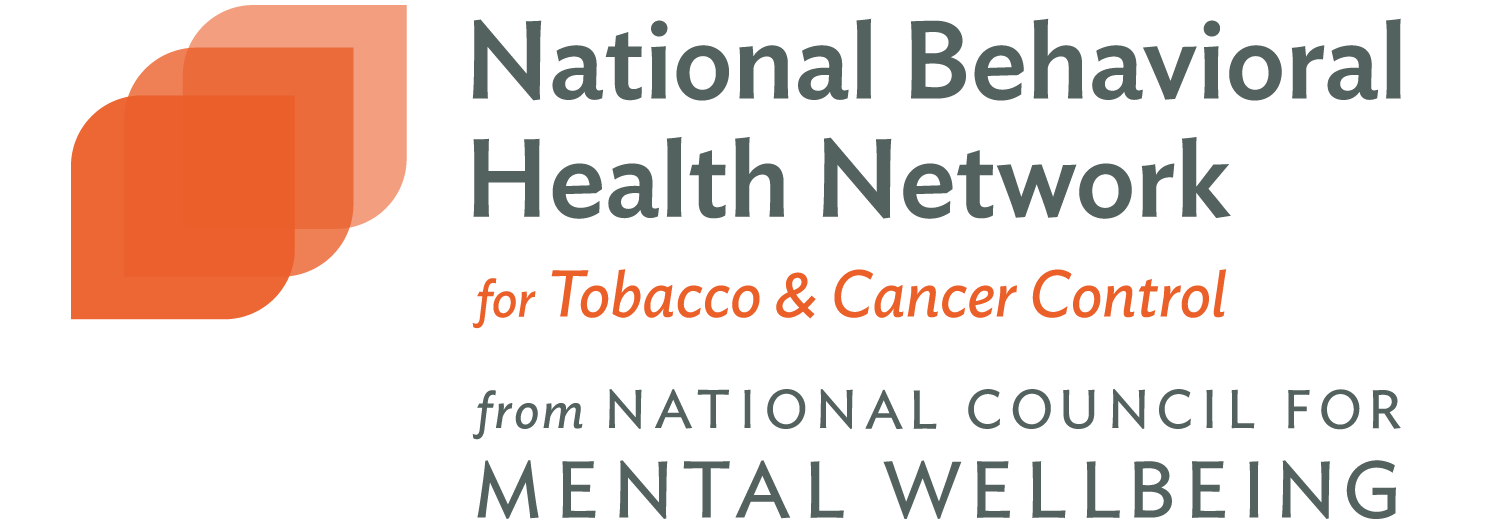Individuals with mental health and substance use disorders use commercial tobacco at rates 2 to 4 times higher than the general population and have an increased risk of cancer. To eliminate these disparities, the National Behavioral Health Network for Tobacco & Cancer Control (NBHN), operated by the National Council, conducted 6 Communities of Practice, an organizational-level practice change initiative with 89 community behavioral health organizations and state, territorial and tribal agencies to eliminate smoking and cancer-related disparities among this population.
CHALLENGE
Tobacco use rates are maldistributed, resulting in significant health disparities impacting individuals with mental health and substance use disorders. Despite higher use rates, and lower quit rates less than 50% of mental health treatment and 64% of substance use disorder treatment facilities screened for tobacco in 2016 and only 48.6% of mental health treatment and 34.5% of substance use disorder treatment facilities had smoke-free campuses. Additionally, research shows individuals with mental health disorders have an increased risk of cancer. One study found total cancer incidence to be 2.6 times higher among individuals with serious mental health disorders.
SOLUTION
To address these significant health disparities, NBHN, funded by the CDC, engaged 89 organizations and/or agencies from 23 states, 1 territory and 1 tribe, to increase their knowledge, understanding, and delivery of evidence-based tobacco and cancer control practices. The organizations were trained on new skills, policies and procedures, and implemented new organizational practices facilitated through the support of Communities of Practice (CoPs). A CoP is “a group…who share a concern, a set of problems, or a passion about a topic, and who deepen their knowledge and expertise by interacting on an ongoing basis.” NBHN’s CoPs address the delivery of evidence-based interventions through in-person and virtual training, action planning, webinars, peer learning, and coaching with subject matter experts.
RESULTS
As a result of participation in the CoPs, 84% of teams felt increased confidence in their ability to address tobacco and/or cancer in their organization. Additionally, 88% of teams reported an increase in knowledge about tobacco and/or cancer control. During the CoP, organizations developed and implemented action plans around: developing, updating or enhancing smoke-free policies; increasing tobacco cessation supports available to clients; expanding or improving partnerships, and more. On average participating organizations, during the 7-month initiative, completed over 60% of their short-term action steps, such as engaging leadership, or initiating a collaboration with state tobacco and comprehensive cancer control partners. They also completed over 40% of long-term action steps, such an implementing a smoke-free policy or initiating cancer screenings.
“My experience with this CoP has been invaluable. To be able to get perspectives from likeminded professionals across the country, as well as through the expertise from NBHN and the faculty was a tremendous experience.”- CommuniCare, Inc, 2016 CBHO CoP participant
SUSTAINABLE SUCCESS
Key evidence-based interventions, such as smoke-free policies, tobacco cessation, and increased cancer screening have been implemented at the organizations impacting tens of thousands of people with mental health and substance use disorders. For example, one participating organization implemented a 100% tobacco free policy at 60 behavioral health campuses affecting 33,000 people annually. Another participating organization increased cervical cancer screening rates by 56% and breast cancer by 64% in women eligible for screening. Another participating organization credits the CoP’s team-based approach to developing a wellness plan and drafting a comprehensive tobacco-free policy as the catalyst that drew a commitment to implementing the policy from leadership.
Your Involvement is Key!
Interested in addressing tobacco and cancer control? Need support in developing an action plan, engaging staff and/or receiving training and technical assistance? To learn more about NBHN and gain direct access to free resources, training, e-digest, or to join our next CoP visit BHtheChange.org or email us at bhthechange@thenationalcouncil.org.

